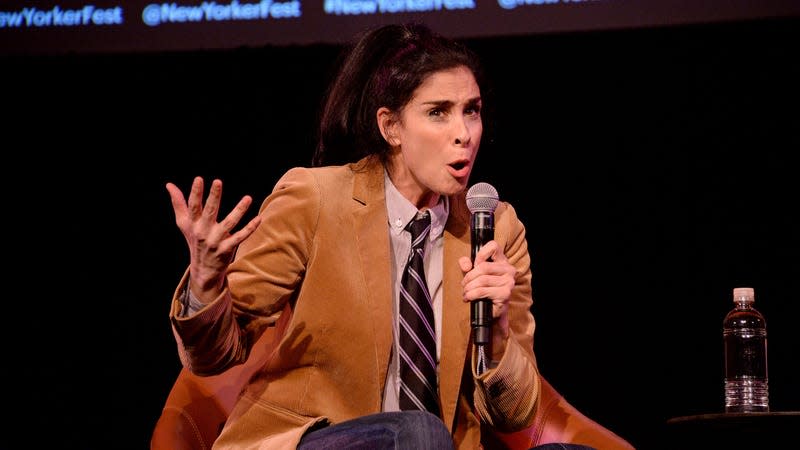Not Funny: Sarah Silverman Sues ChatGPT and Meta After AI Allegedly Trained on Her Book

- Oops!Something went wrong.Please try again later.
- Oops!Something went wrong.Please try again later.
- Oops!Something went wrong.Please try again later.
Sarah Silverman is not laughing when it comes to ChatGPT. The comedian is now suing OpenAI and Meta—along with two other authors named Christopher Golden and Richard Kadrey—alleging that ChatGPT and LLaMA have both been trained on the trio’s copyrighted books.
Silverman, Golden, and Kadrey argue in the respective complaints, which were both filed on July 7 in the Northern California federal court, that OpenAI’s ChatGPT and Meta’s LLaMA were trained on copyrighted material, which includes published literary works from the trio. While both OpenAI and Meta make mention that they do not train on copyrighted material, the authors allege that some of the training data come from a shadow library of sources like Library Genesis, Z-Library, Sci-Hub, and Bibliotik, which are internet-based torrent repositories that include copyrighted books. In an exhibit from the author’s lawsuit, the plaintiffs asked ChatGPT to recite excerpts from Silverman’s book The Bedwetter, to which it relayed passages from the memoir verbatim.
Read more
Silverman, OpenAI, and Meta did not immediately return Gizmodo’s request for comment. Golden and Kadrey declined to comment.
The lawyers representing the authors, Joseph Saveri and Matthew Butterick, have a previous track record of filing lawsuits against companies peddling AI. The two wrote on their blog LLM Litigation that they have “been hearing from writers, authors, and publishers who are concerned about its uncanny ability to generate text similar to that found in copyrighted textual materials, including thousands of books.” The two lawyers were part of a similar lawsuit filed by authors Paul Tremblay and Mona Awad, who both made allegations against OpenAI that are similar to those described by Silverman, Golden, and Kadrey.
As the novelty of AI has come and gone—despite companies running full force into a passing fad at the expense of their employees—the tech is just not all it’s cracked up to be. While AI like ChatGPT can generate strings and paragraphs of coherent text, the issue is that LLMs can simply lift pre-existing (often copyrighted) material from other sources, only to Frankenstein it into an “original” piece of writing. Lawsuits like this will be the only way to clarify the limits of copyright in the age of AI.
More from Gizmodo
Sign up for Gizmodo's Newsletter. For the latest news, Facebook, Twitter and Instagram.

